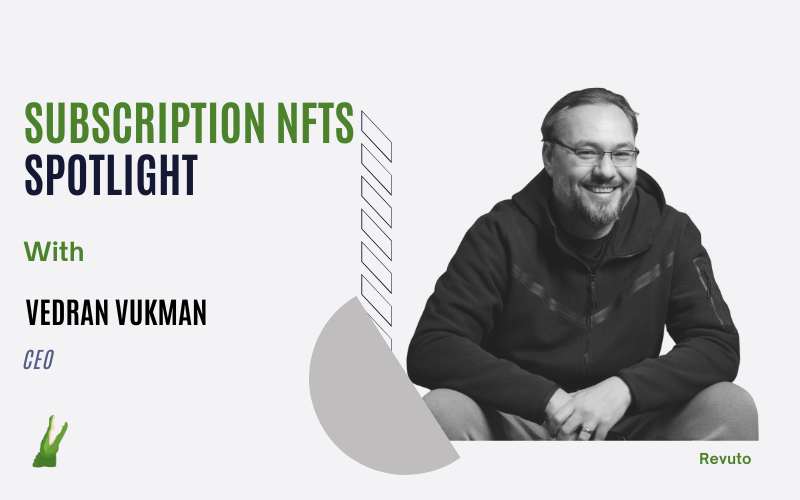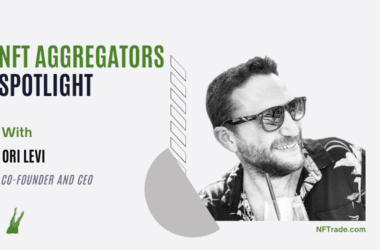In the subscription economy, it’s become a norm for people to subscribe to multiple services at once. However, it’s easy to lose track of the services one no longer needs but is still paying for. Many service providers also offer an annual subscription, which at first glance may seem more economical compared to monthly subscriptions, but some users would end up not using the service for the entirety of the subscription period despite initially thinking they would.
How does NFT come into play? As the NFT space continues to grow, new use cases for the technology keep popping up. For instance, NFTs can now be used to keep track of their subscription services by giving users the ability to subscribe to any service for a period of their choice, instead of having to pick from a monthly or yearly fixed period offered by the merchants.
This solution is being offered by Croatian startup, Revuto, by combining NFTs with virtual debit cards that the company issues to users. The NFT represents proof of pre-payment of the subscription period chosen by users and Revuto will top up the virtual debit card with the funds necessary to pay for that subscription period until it ends. Furthermore, users can also monetise and save on subscription fees, not just for themselves, but also for others, if they decide that they don’t need the subscription service anymore. If there’s still a subscription period left, they can simply sell the NFT to other users or gift it to someone else.
To find out more about this new use case for NFTs, we speak to Revuto CEO Verdran Vukman, who explains what other utilities the platform’s NFTs bring to its users.
Please tell us about yourself and the story behind your role at Revuto.
My name is Vedran, and I’m the CEO and co-founder of Revuto, a crypto-powered mobile app to help people actively manage their subscriptions and pay for their subscriptions less by using Revuto debit cards.
The goal is to offer users a single place for all their subscriptions, protection against unwanted subscription charges (including free-trial traps), privacy, and, most importantly, to save and earn money on their subscriptions.
The idea for the project came from my personal experience. While running my previous company, I noticed that I was paying almost all tools and services on a monthly subscription basis while losing track of how much, when, to whom, and with what I was paying for. I put everything on paper, all those cards I pre-authorized with all kinds of services, and the first thing I noticed was that I was paying for things I wasn’t using anymore. Also, I was shocked by how much I was paying monthly for all those subscriptions.
Amazed by my findings, I asked others if they had the same problem, and interestingly, almost everybody confirmed. Later, I asked our CTO, who was at the time an employee of fintech company, Intuit, if he could get me the data from Quickbooks, Mint, Quicken… about people’s spending and I was amazed by the numbers. Immediately, we started to talk about building the product to solve a big problem in the market that’s growing 100% year over year.
What piqued your interest in the NFT space and where did you first hear about it?
To be honest, I can’t remember when exactly the first time I heard about the NFTs was, but I remember being interested in the fact that every token is unique. Also, the fact that most people who don’t understand crypto were talking about them being just overpriced jpegs (photos) annoyed me to the point that I had to come up with a completely different use case for NFTs.
How did the idea of the Revulution NFT come about?
In a way, it was a natural step forward. Starting with our ICO, we offered NFTs to our users, and when we saw their response, the decision to find other great use cases for our NFTs was easy. Still, I would say the Revulution NFTs are the pinnacle of that process.
Are the subscription NFTs launched in official partnership with the subscription services? How do you get them on board?
When subscribing directly with merchants, in most cases, users can choose between a monthly subscription and a 12 or 24-month subscription to save money. In reality, paying for a longer subscription period is good for service providers but bad for users because more than 50% of users are losing money on subscriptions they already paid for but didn’t use.
So we came up with an awesome utility for the tech where we use NFTs as proof of pre-payment for specific services and virtual debit cards to allow users to pay for those subscriptions. The setup may seem complicated, but it’s simple, and it works without needing to partner with service providers. All they see from Revuto users is a Mastercard number they use with their accounts to pay for their subscriptions.
Besides Spotify and Netflix, what other subscription services will Revuto be selling subscriptions NFTs for?
Unlike Subscription NFTs, Revolution NFTs for free Netflix or Spotify for life are nothing more than an introduction to the set-up in which our users can use NFTs and virtual debit cards to subscribe to their services.
We decided to name them Revulution NFTs because the plan is to revolutionize the subscription economy by allowing users to monetize their unused subscriptions. Still, Revolution NFTs are special because we offer users the unique opportunity to get a free subscription to Netflix or Spotify for life.
Users holding the Revulution NFT in the Revuto app will get a virtual debit card to subscribe to Netflix or Spotify, but in this case, Revuto will be topping up the user’s virtual debit card to pay for Netflix or Spotify monthly subscription as long as there’s Revulution NFT in his Revuto wallet. Again, if the user, for any reason, decides not to use his Netflix or Spotify anymore, he can send or sell that NFT to another user so he can enjoy the same.
Revulution NFTs are a one-time offer meaning Revuto won’t be offering the same again. Our business model is not to offer lifetime subscriptions but to allow users to prepay a specific subscription for the period of their choice (by buying the NFT), which they can later use with Revuto to get a virtual debit card and use it to subscribe to that service for that specific period.
For Revuto, those 10,000 NFTs will work as part of the user acquisition model because those NFTs are transferable and tradable while keeping a lifetime value to their holders.
Why do you think NFT is a good solution to allow Revuto users to sell, gift and monetise their unused subscriptions?
We believe there are many advantages that setup brings. Firstly, we directly attack the gift card market by allowing users to buy NFT for any subscription, for any period, and sell or send it to others. In that regard, why not buy Subscription NFT for Netflix for six months and send it to somebody as a birthday present? The same works with any subscription for any occasion. By allowing people to sell or send those NFTs, there could be a whole new market of unused subscriptions where people could come and buy them to pay less for the subscriptions compared to what they would pay if buying directly from the service provider.
Besides issuing the Revulution NFTs, how else will Revuto be expanding its reach in the NFT space?
At the moment, we’re offering several NFTs which give different utilities to their owners. They can be earned from staking REVU tokens, investing in projects we partnered with, or similar. For instance, Special NFTs boost users’ referral rewards when it comes to getting a percentage of referred friends’ cash back whenever they use Revuto to pay for their subscriptions. All NFTs are set up to incentivize the user base to stay with Revuto and help them save money.
What do you think about the current state of the NFT market? What kind of role is Revuto playing in it?
I believe that in the future, we’ll see fewer NFTs being part of collections to speculate with and more as a tool to produce great utility in the specific ecosystem. I bet many projects will come up with setups for those NFTs, which we can’t think of right now.
What can users look forward to from Revuto this year?
The next significant milestone for Revuto is to add the subscription management feature with virtual debit cards to the app. After almost a year of due diligence and onboarding with our banking and card issuing provider, we’re finally ready to move to the next stage, where we’ll first start issuing debit cards to UK citizens. Later in the year, we’ll allow the same for the EU citizens.
What are the most challenging aspects of your role at Revuto and how do you overcome these challenges?
As the company’s CEO dealing with 44 people involved in the project, I can only say that my task is not to sleep at night. The responsibility is enormous, and all the time, I ask myself if I made the right decisions, if this will work, if I hired the right people for the job, if we’ll have enough money to survive. What do I do to overcome those challenges? I work harder!
Where do you think we could see NFTs in the near future?
That’s hard to predict. We’re not so much involved in what others are doing with their NFTs, but what I can see as a trend is many projects pushing them into the metaverse. I’m not sure if that use case will dominate the NFTs in the future, but time will tell. Personally, I would rather see them in real-world use cases than metaverse, but I’m not here to judge. The market (users) will decide.
Any other NFT-related industry issue you would like to talk about?
One issue with NFTs is the perception of NFTs from those not involved so much with crypto. They think NFTs are overhyped, used mainly for wash trading and selling overpriced photos to greater fools. I hate when I hear that because I see bigger potential in NFTs compared to what they’re mainly used for.
Stay up to date:





